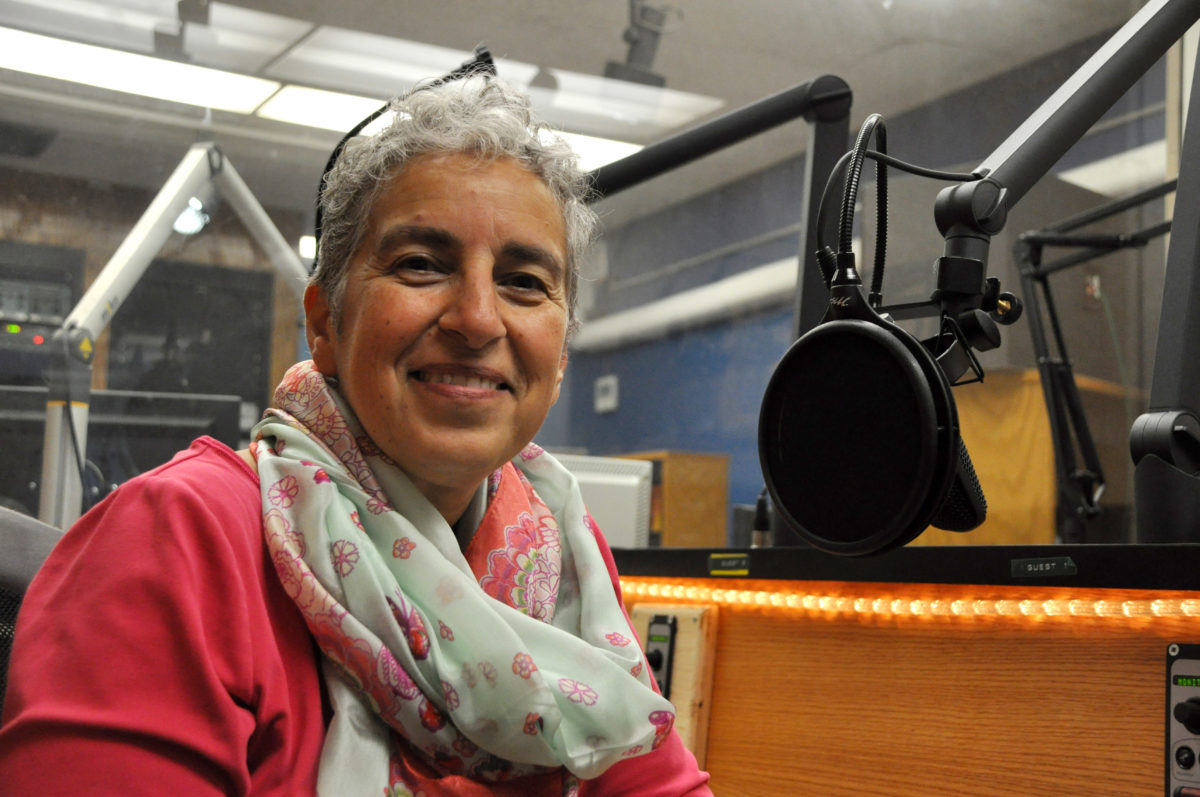
Over a tossed salad with broccoli and medium-cooked steak bits, Talin Vartanian sits down for the interview. Breaking up her ciabatta bun, she says she loves cooking.
Another of her loves is radio.
“Radio to me has a magic about it. It always has,” she said.
As this year’s Irving Chair in journalism, long-time CBC Radio producer Talin Vartanian will be at STU until late November.
She will go to different journalism classes, share her experiences working at the CBC and deliver a speech on Oct. 24.
Her speech will be on “How the mainstream media fail women and what you can do about it,” an issue close to her heart. She would like to see more women giving their opinion about topics everybody cares about like pipelines, crime and the environment.
“If you actually look at the bylines in newspapers of those who write editorials, these are the opinion leaders,” said Vartanian. “If you look at the voices on radio and on television, just start to observe, watch what goes by, look at the stories that are told, look at the number of men in suits that you see, and how many women there are telling stories.”
Vartanian was born in Jerusalem and moved as a toddler to Canada. She lives in Toronto with her family. Vartanian has been a radio producer on CBC programs such as Morningside, This Morning and The Sunday Edition. She also produced six seasons of Canada Reads.
She said she has always loved radio. Although television is a visual medium, Vartanian said TV reporters are too restricted and dependent on crew, technology and pictures to tell a story. With radio, she said, you can make a story compelling with nothing else but your voice.
“It’s said, and I believe it, that radio is the most visual medium that exists.”
She said listening to someone speaking on the radio is like reading a book. The mind creates pictures of the interviewees and the situation. It imagines a whole world.
Growing up, Vartanian didn’t want to become a journalist. However, she always enjoyed writing.
“I fell into journalism for perhaps not the most ambitious reasons,” she said.
“I really felt a strong need to move away from home, because I felt I didn’t have the freedom I wanted as a young girl growing up in an ethnic family. My movements were really restricted. I thought, ‘I need to go away, I can’t do this.’”
As there wasn’t a possibility to get a degree in journalism in Toronto, Vartanian went to Carleton University in Ottawa. She was very involved in student politics, wrote for the student paper, hosted and produced her own radio show at the campus radio station.
She said her involvement outside the classroom was probably what landed her the job at CBC. With 20 to 50 classmates who all have the same journalism education, the outside of the classroom experience lets you grow. It shows “you’ve taken yourself out of that secured, little environment and you’re doing something bigger and broader and you’re learning in different ways.”
Along with 50 other journalists, she applied for a posted radio job at the CBC. At the end of her interview, she was asked if she would like to add anything. She replied, “Would you like to have some ideas for tomorrow’s show?” and presented 15 story ideas. Her interviewers liked four of them.
“If you don’t go to bat, you’ll never hit a home run.”
Last summer, Vartanian spent three months in Montpellier, France, and one month in Paris. She said she wants to keep up her French. When she heard about the francophone Centre Communautaire Sainte-Anne in Fredericton, she signed up for a five-week long cooking class.
“I’m going to learn to make French pastry and croissants. And I’m going to learn in French. Should be fun,” she said.
“We probably end up taking treats home, I hope so.”
